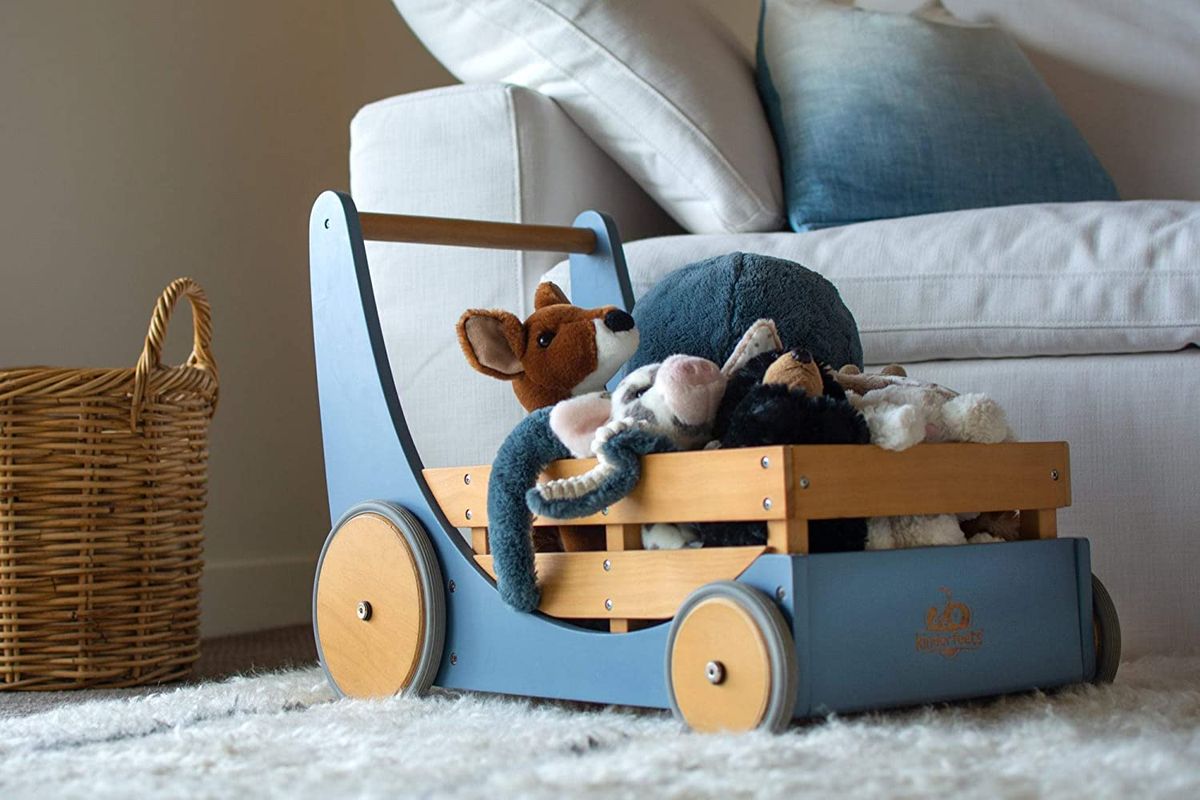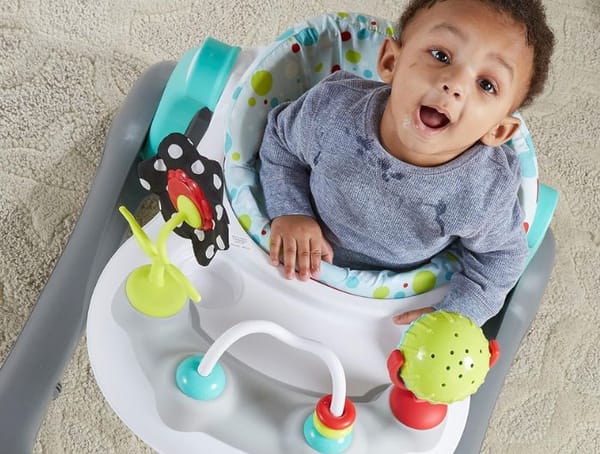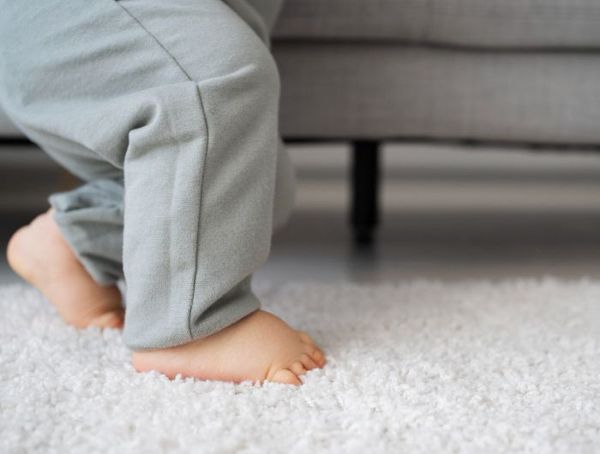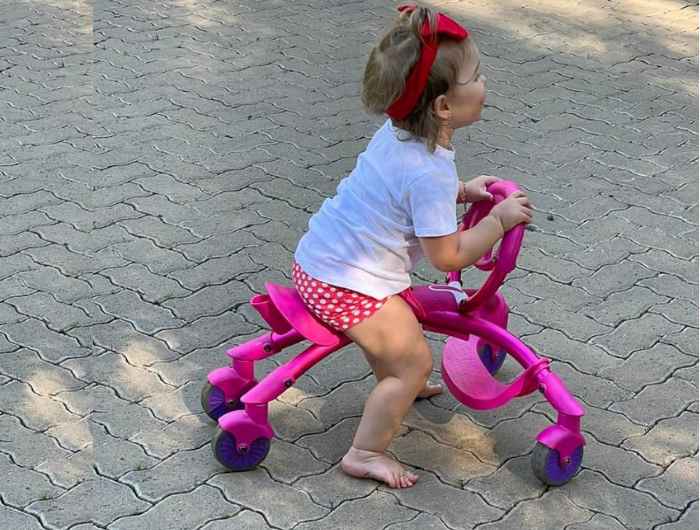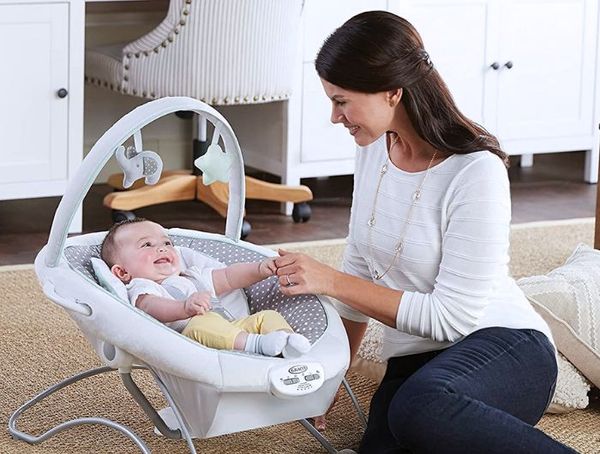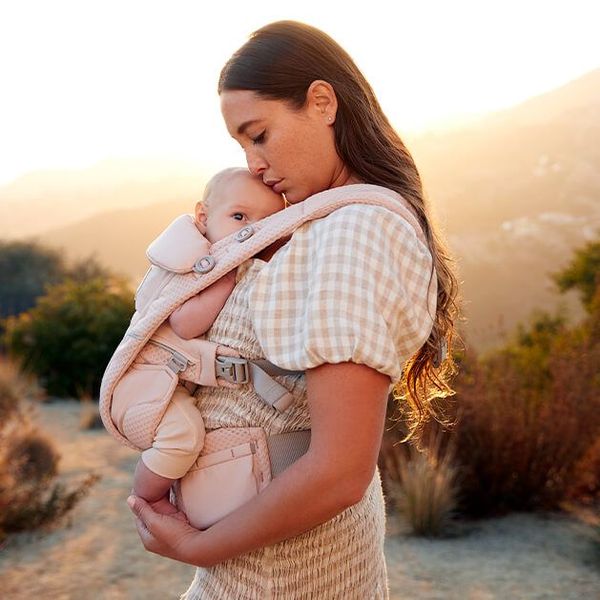As we watch our little ones grow and take their first wobbly steps, we're often faced with the decision of choosing between a baby push walker and a regular walker to support their walking journey. If you're wondering which one is the better option for your baby, you've come to the right place!
What Is A Push Walker?
A push walker is exactly what it sounds like—it’s a device specifically designed to help your child become comfortable with walking. It looks like an oversized toy car, but with four wheels instead of two and handles on either side so that your child can easily grip onto them as they move around.
It also has a wide base for stability, so your child won’t fall over while making their first steps. Push walkers come in all kinds of shapes and sizes, so there's sure to be one that fits your little one's personality! We have even put a list together for the best baby push walker for hardwood floors.
Encouraging Natural Walking Motion
Baby push walkers are designed to simulate natural walking motions, which is great for helping your little one develop their walking skills. As they push the walker around, they'll learn to coordinate their arm and leg movements, as well as build strength in their lower body.
In contrast, regular walkers can sometimes encourage babies to rely on the walker for support, which can delay their walking progress.
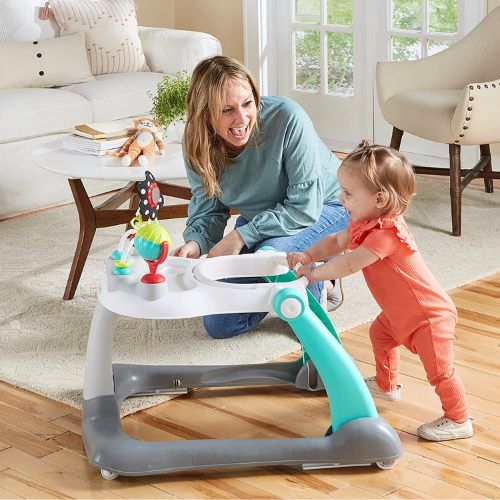
Proper Alignment and Weight Distribution
When your child uses a push walker, they're standing upright with their feet flat on the ground. This promotes proper alignment of their spine, hips, and legs, ensuring that their weight is evenly distributed across both feet. This natural positioning supports the development of strong muscles, bones, and joints, setting the foundation for a lifetime of healthy movement.
In contrast, regular walkers often force your baby into an unnatural posture by supporting their weight with a seat. This causes them to rely on their tiptoes to move around, leading to an uneven distribution of weight and possible misalignment. Over time, this unnatural positioning can hinder their physical development and even lead to potential issues like hip dysplasia or "toe walking."
Safer for Your Little One
Push walkers offer a safer alternative to regular walkers because they don't encourage the same level of mobility. Seated walkers can sometimes enable babies to move too quickly, increasing the risk of accidents and injuries. Push walkers, however, require your child to maintain a certain level of balance and control, promoting a safer learning environment.
Fostering Independence and Confidence
When your child uses a push walker, they're in control of their movements, which helps build their confidence and trust in their own abilities. They can safely explore their environment with their own strength and coordination and learn how their body responds to different movements. This confidence in their physical abilities is crucial for their overall development and self-esteem.
On the other hand, regular walkers can give your child a false sense of security, as they're supported by the seat. This could make the transition to walking independently more challenging and potentially impact their confidence in their own abilities.
Versatility and Added Fun
Many baby push walkers come with built-in interactive features, such as buttons, lights, and sounds. That can help stimulate your child's curiosity and cognitive development.
Regular walkers don't offer as many opportunities for cognitive and motor skill development, which means your baby may miss out on some valuable learning experiences.
Boosting Balance and Coordination
As they grip the handlebar and push the walker forward, your baby learns to control their body movements and maintain balance and stability. As your little one pushes the walker, they learn to shift their weight from one foot to the other, maintaining their balance. This active participation in their walking progress not only strengthens their leg muscles but also enhances their motor skills.
In a regular walker, however, your child's weight is partially supported by the seat, which means they're not fully engaging their muscles or practicing balance and coordination. This lack of practice may hinder natural walking development by promoting improper posture and movement patterns.
Adaptable to Different Stages of Development
Push walkers are versatile and can easily adapt to your child's different stages of development. Many models can be adjusted in height, allowing your baby to use the walker as they grow taller. Some even transform into other toys, like ride-on toys or activity tables, giving you more bang for your buck!
Regular walkers, on the other hand, have a more limited lifespan, as they're usually only suitable for babies who haven't yet learned to walk independently.
Benefits Of Push Walkers For Babies
Push walkers have several benefits for young children who are learning how to walk. Even a 9 months old baby can benefit from using a push walker. For starters, push walkers give toddlers the confidence necessary for learning this important milestone without having to rely on parents or siblings for assistance every step of the way.
Additionally, using a push walker stimulates physical development by encouraging natural muscle movements in the arms and legs which lead to stronger muscles and increased coordination over time.
Finally, push walkers provide just enough support for toddlers without being overly restrictive; this allows children to learn at their own pace without feeling overwhelmed or trapped inside a bulky device. You can learn more about pros and cons of baby push walkers in our comprehensive guide.
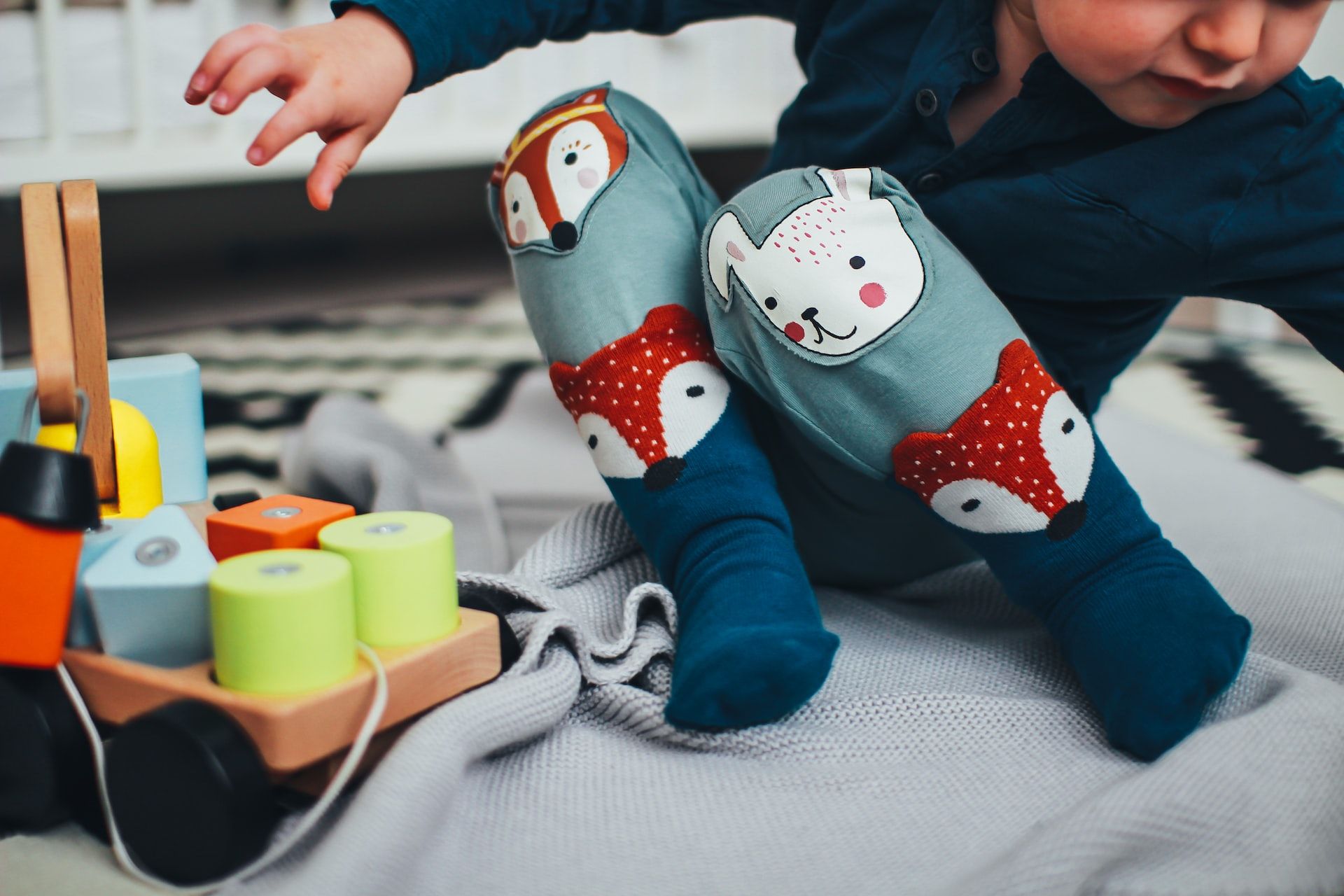
Conclusion
In conclusion, a push walker's ability to encourage natural posture and movement is a significant advantage over regular walkers. By promoting proper alignment, balance, coordination, and confidence in movement, push walkers set your child up for a lifetime of healthy and enjoyable physical activity.
Thank you for reading Mother Bear Reviews, your favorite parenting blog!


